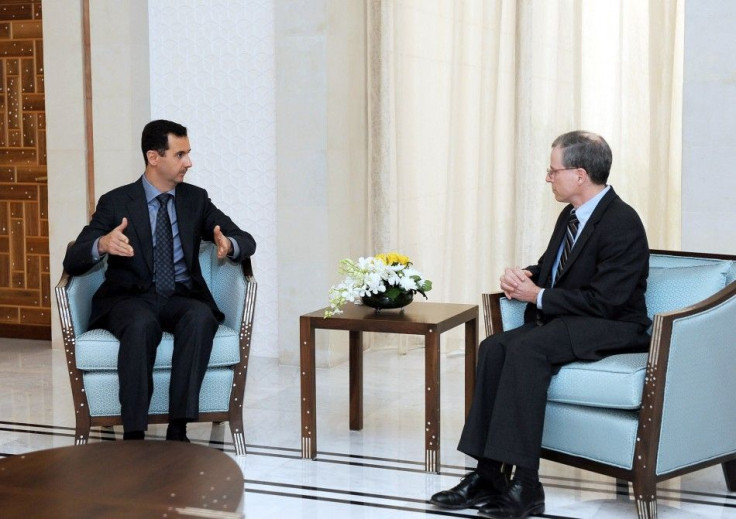Terror Threats Against U.S. Ambassador in Syria: What Does this Mean for the Future?

With terror threats looming on the horizon, the U.S. ambassador to Syria returned home. Ambassador Robert Ford had begun forming relationships with the growing movement against Syrian President Bashar al-Assad, angering the Syrian government and leading to attacks on the embassy and his residence.
U.S. officials said there had been real and credible threats against Ford's life. They accused the Syrian government of failing in its obligations to protect foreign diplomats, especially Ford. Ford, who is back in Washington after leaving Damascus, is known to be more outspoken and more unconventional than most other U.S. diplomats, even using social media to reach out to the anti-Assad movement.
Ambassador Robert Ford was brought back to Washington as a result of credible threats against his personal safety in Syria, said Mark Toner, a state department spokesman, according to The Guardian. At this point, we can't say when he will return to Syria. It will depend on our assessment of Syrian regime-led incitement and the security situation on the ground.
In retaliation, the Syrian government immediately recalled its ambassador Imad Moustapha. Roua Shurbaji, a Syrian embassy spokeswoman, told The Associated Press that no other steps were being taken by the embassy.
The withdrawals of the diplomats add increased tensions to the shaky relationship of the two nations. Syria has been listed as a state sponsor of terror since the list's inception in 1979. When President Obama assumed office, he attempted to peacefully reach out to President Assad. However that all changed this year. For months, Washington has called on President al-Assad to deter from using violence and the movement against his administration and relinquish power. However, U.S. officials did not say this means a complete breakdown in talks between Washington and Damascus.
Ford had been the ambassador to Syria for less than year. He was actually given the position in hopes of improving relations. However, that all changed when Assad began violently attacking protestors against his administration. Along with the French ambassador, Ford actively sought to meet with the protestors. They were greeted by olive branches, roses and cheering crowds.
Last month, Ford's convoy was targeted by a pro-government mob in Damascus as he met with protestors. The office where the two met was also attacked. Although there was serious damage to embassy vehicles, no one was harmed in the attacks.
It will be incumbent on the government of Syria to provide for his security when he returns and to meet its Vienna Convention obligations, just as we do in protecting Ambassador Moustapha here, said Victoria Nuland, and spokeswoman for the State Department in an article by Reuters.
Vice President Joe Biden triggered speculation last week about U.S. intervention in Syria by saying that the same military power that was used to protect civilians in Libya could be used to protect civilians elsewhere.
Now that military operations in Libya are ending, there will be renewed focus on what practical military options might be considered to protect civilian lives in Syria. The Assad regime should not assume that it can get away with mass murder. Gadhafi made that mistake, and it cost him everything, said Senator John McCain, in an article by The Guardian.
© Copyright IBTimes 2025. All rights reserved.





















